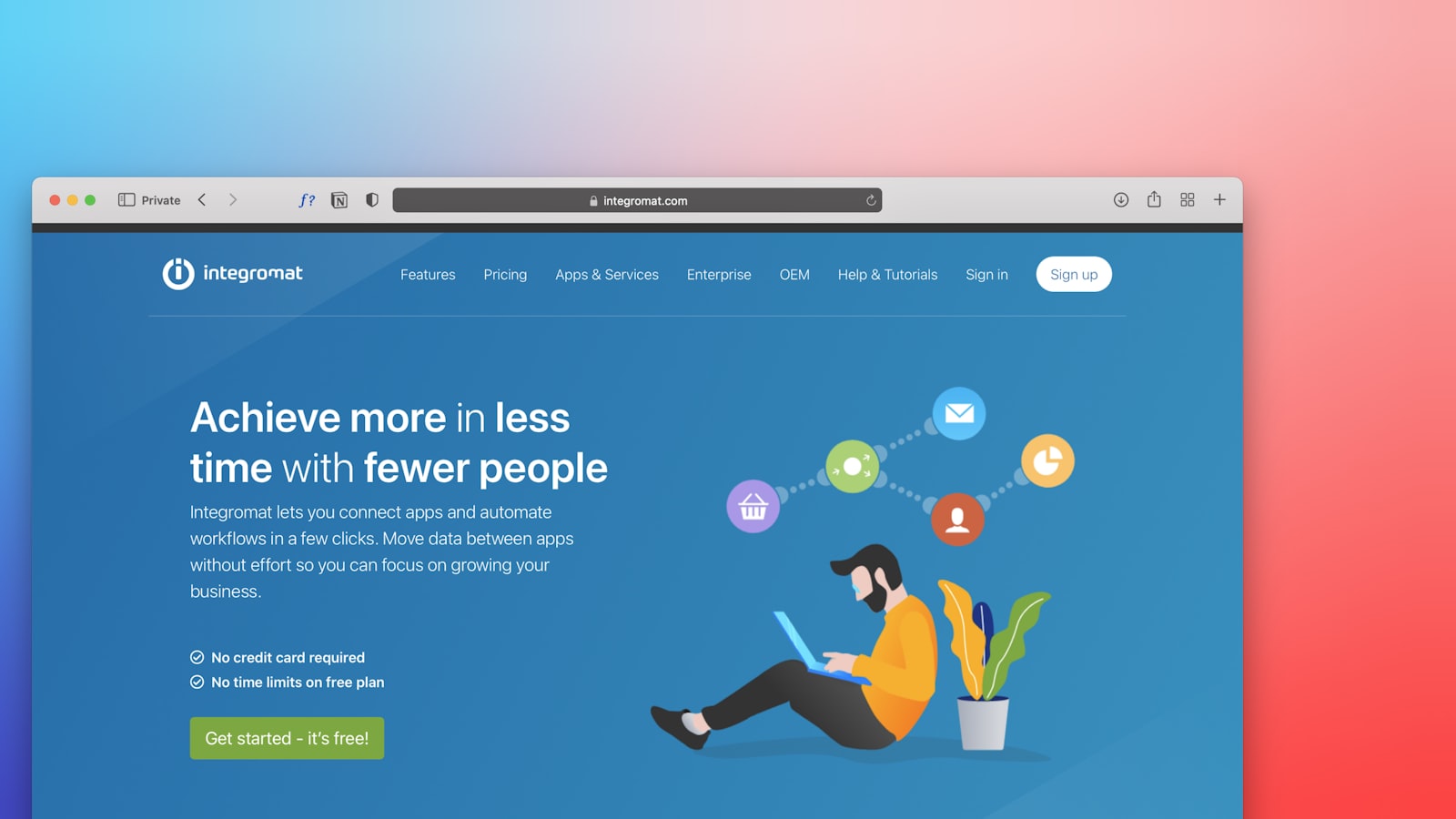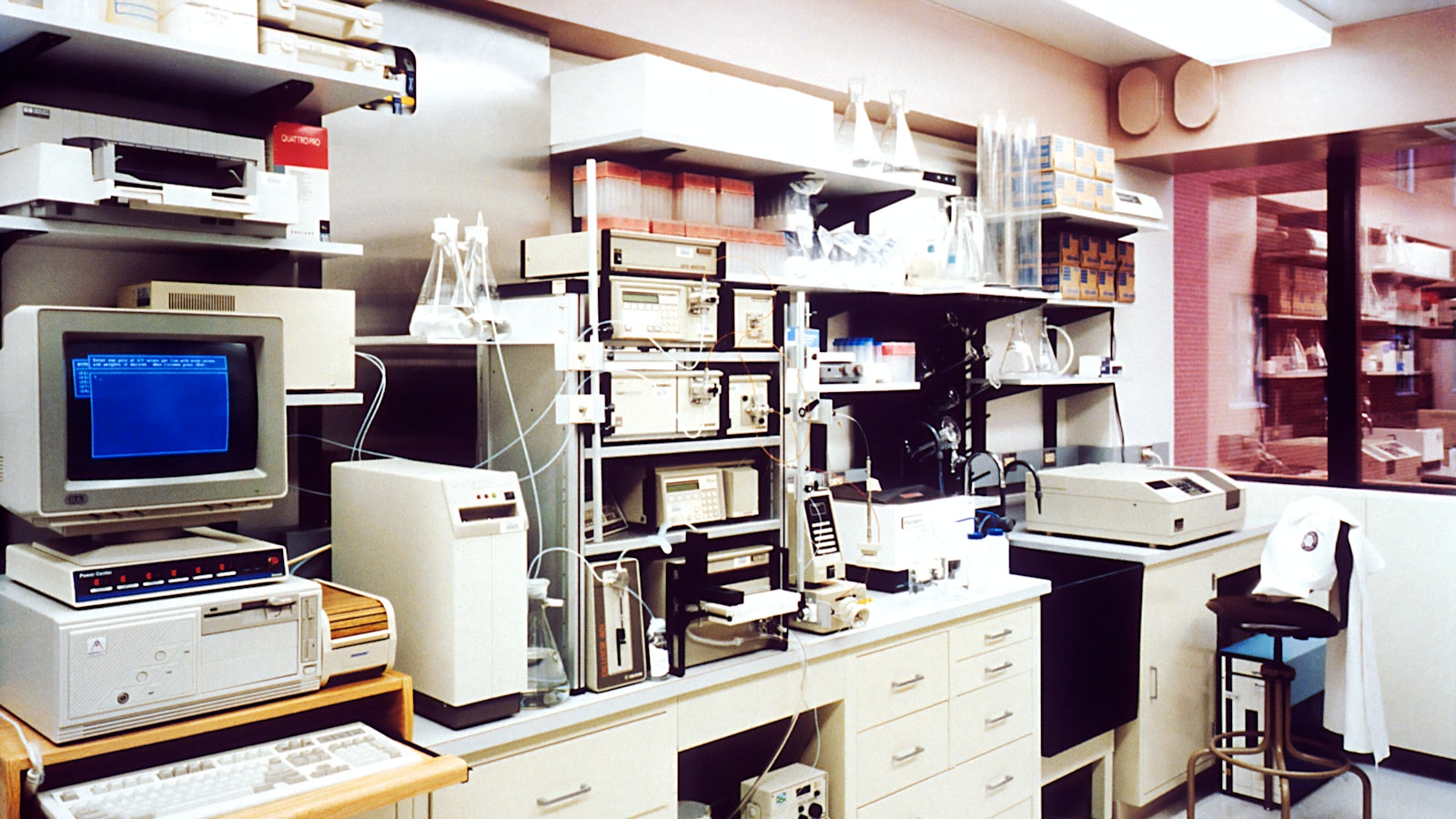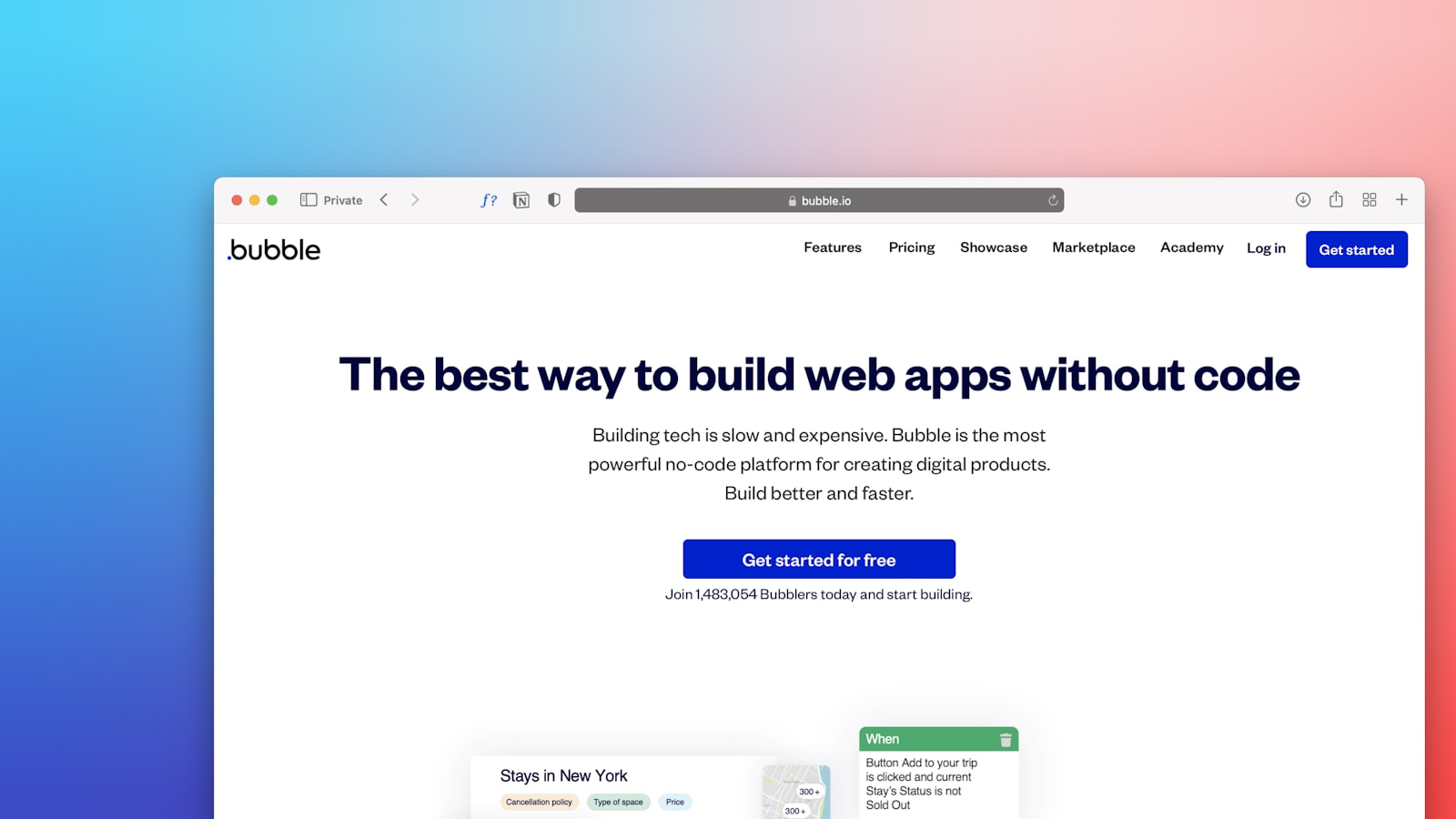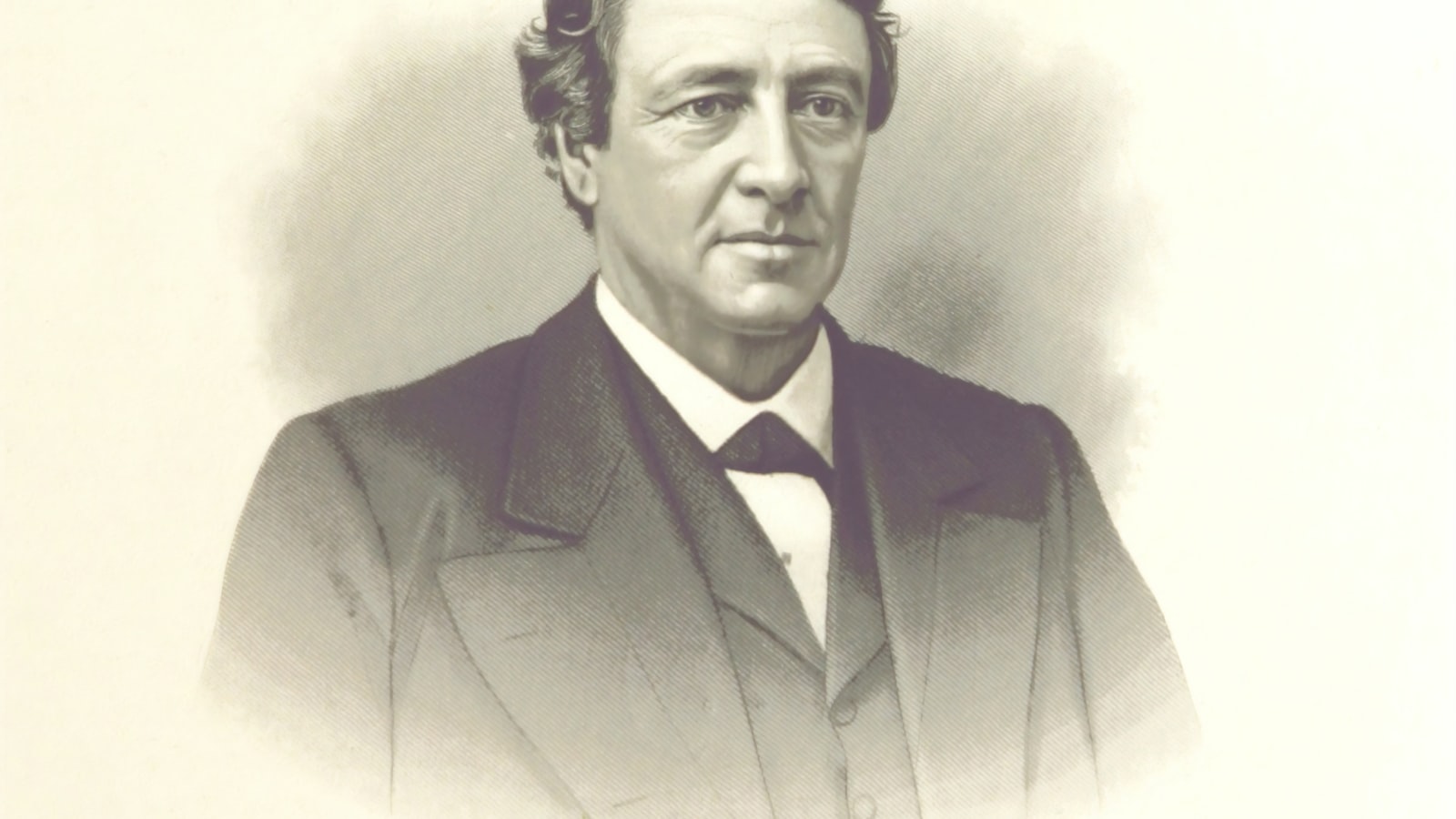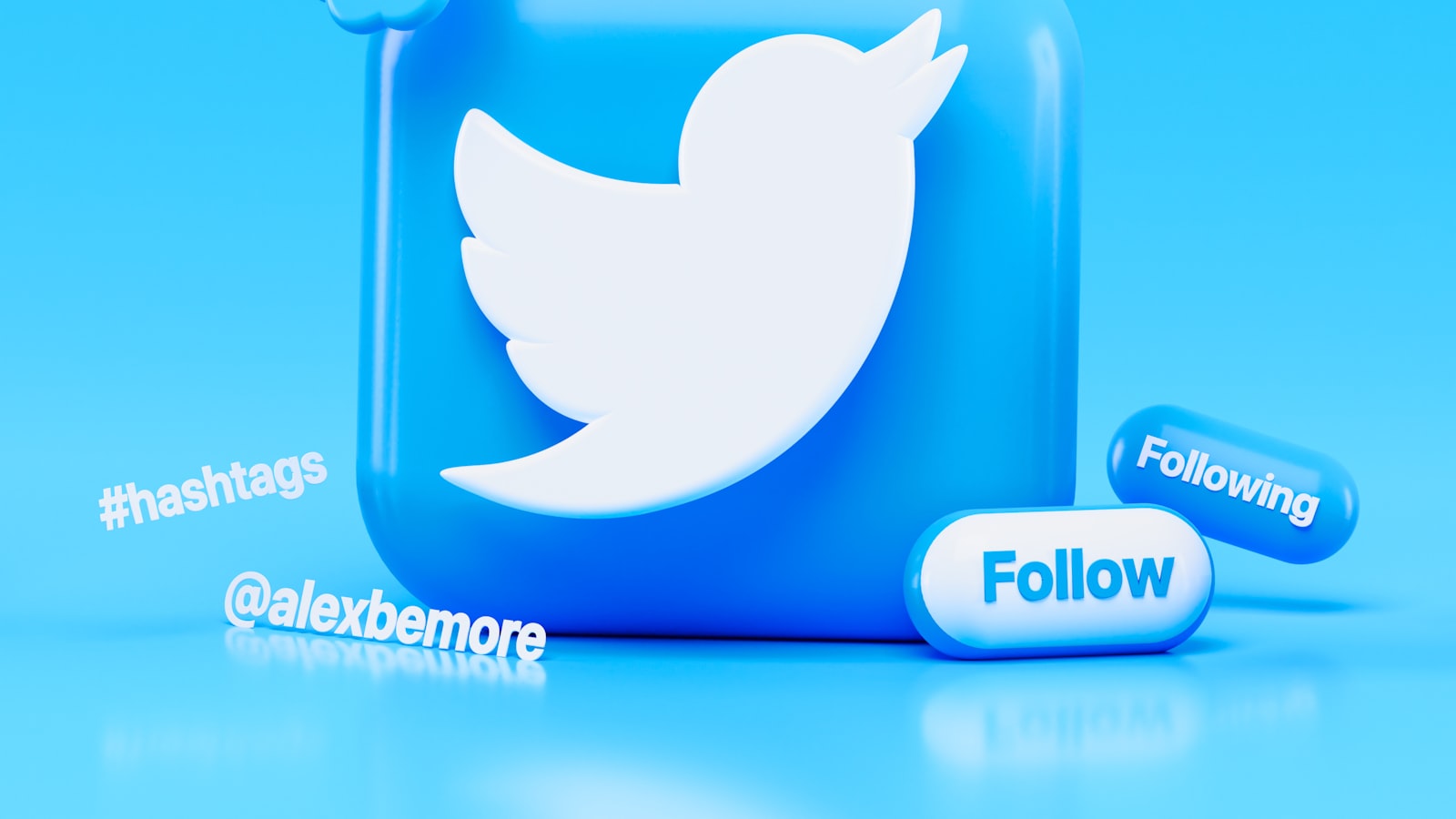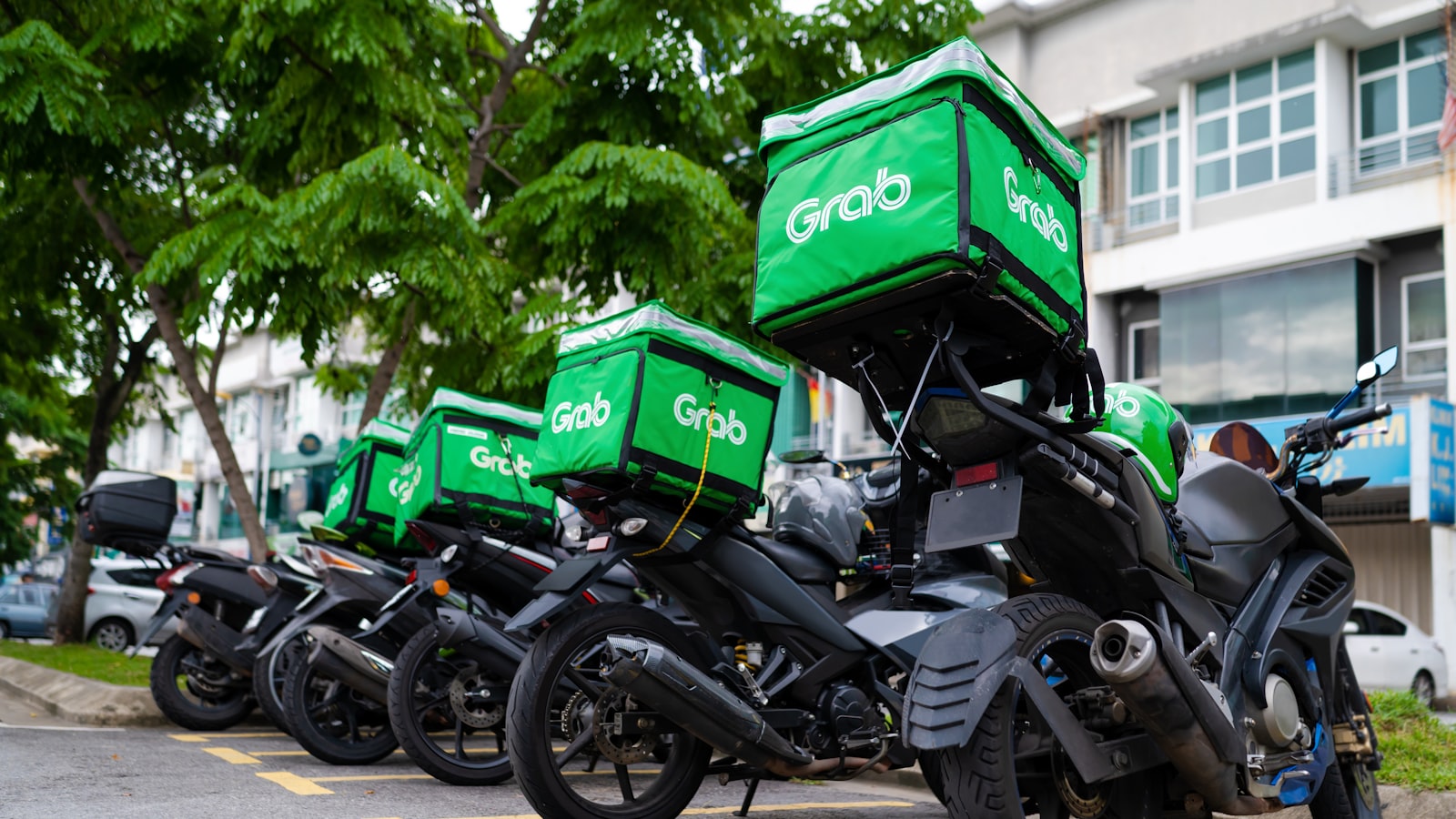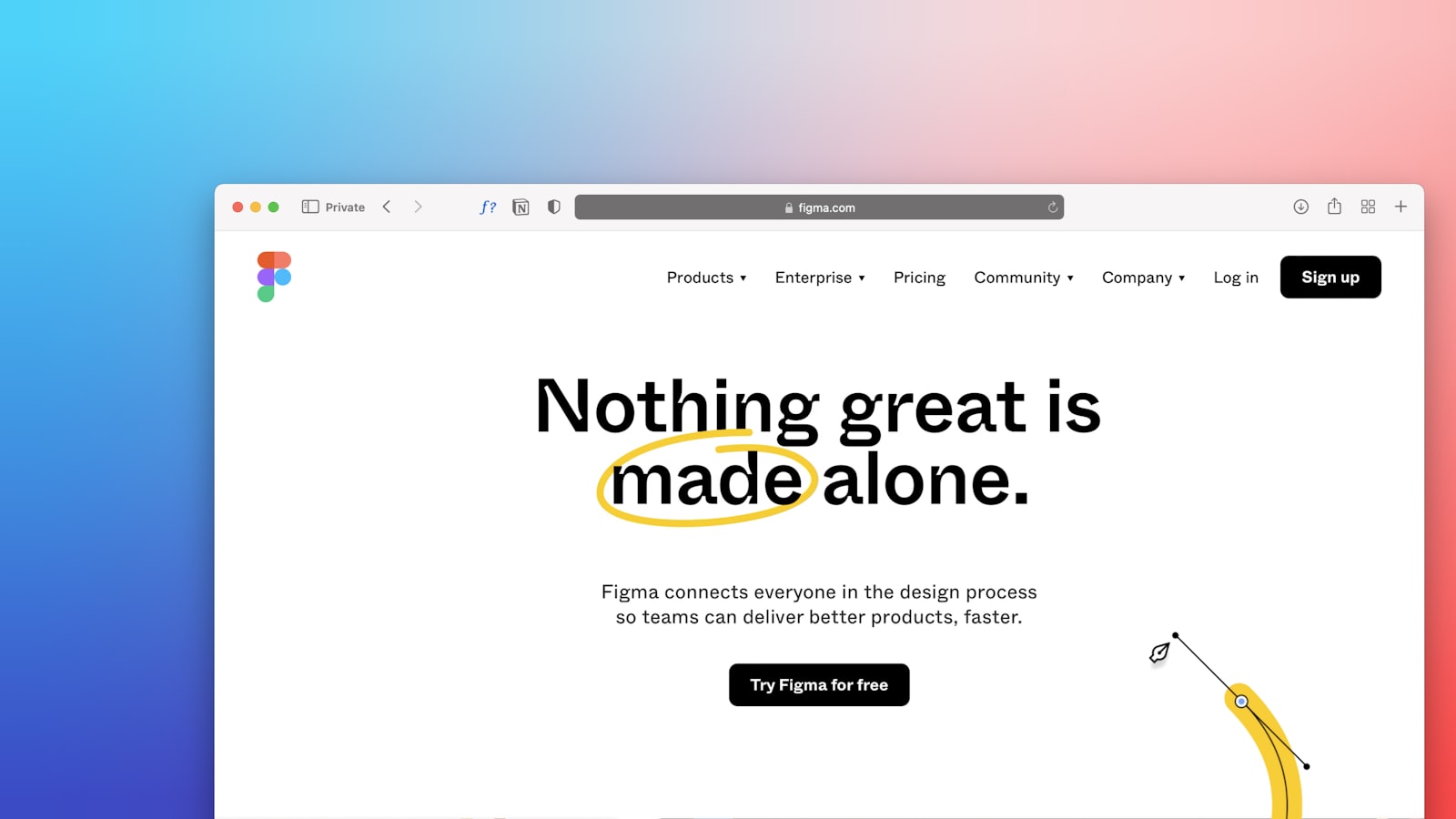How to Implement Marketing as a Service in Your Business
How to Implement Marketing as a Service in Your Business
How to Implement Marketing as a Service in Your Business
Learn how to implement Marketing as a Service in your business to streamline efforts, increase efficiency, and drive better results.
Learn how to implement Marketing as a Service in your business to streamline efforts, increase efficiency, and drive better results.



Introduction to Marketing as a Service (MaaS)
Ever wish you could just outsource all your marketing headaches and focus on what you do best? Enter Marketing as a Service (MaaS), your new best friend in the world of business growth. Think of MaaS as your personal marketing wizard, ready to conjure up results while you sip your coffee and watch the magic happen. Intrigued? You should be.
What is Marketing as a Service?
Marketing as a Service (MaaS) is like having an entire marketing department at your fingertips without the hassle of hiring, training, or managing a team. It’s a subscription-based model where a third-party provider handles your marketing needs—from strategy to execution. In other words, you get top-notch marketing expertise without the full-time commitment. Sounds like a win-win, right?
The Evolution of Marketing Needs
Gone are the days when a catchy jingle and a flashy billboard were enough to drive sales. Today’s marketing landscape is a labyrinth of digital channels, data analytics, and consumer behavior trends. Businesses need to be agile, data-driven, and omnipresent. MaaS evolves with these needs, providing scalable solutions that keep your marketing efforts cutting-edge and effective.
Benefits of MaaS for Businesses
Cost-Efficiency: Why break the bank on a full-time team when you can pay for what you need, when you need it?
Expertise: Get access to seasoned marketing pros who live and breathe strategy, content, and analytics.
Scalability: Whether you’re a startup or an enterprise, MaaS grows with you, adapting to your unique needs.
Focus: Spend more time on your core business activities while the experts handle your marketing.
Measurable Results: With MaaS, every campaign is tracked and optimized for maximum ROI. No more guesswork.
Why Consider MaaS for Your Business?
Cost-Effectiveness Compared to In-House Teams
Hiring an in-house marketing team can be a costly endeavor. Salaries, benefits, training, and overhead expenses add up quickly. Marketing as a Service (MaaS) offers a more budget-friendly alternative. By outsourcing your marketing needs, you only pay for the services you use, allowing you to allocate your budget more efficiently. This approach can save you a significant amount of money while still delivering top-notch marketing strategies.
Access to Advanced Marketing Technologies
MaaS providers often have access to the latest marketing technologies and tools that might be too expensive or complex for individual businesses to manage. These technologies include advanced analytics, automation software, and cutting-edge SEO tools. By leveraging these resources, your business can stay ahead of the competition without the need for a hefty investment in technology.
Flexibility and Scalability
One of the biggest advantages of MaaS is its flexibility and scalability. Whether you're a startup looking to grow quickly or an established business aiming to expand into new markets, MaaS can scale with your needs. You can easily adjust the level of service you require based on your current goals and budget, making it a versatile solution for businesses of all sizes.
Speed and Agility in Execution
Marketing campaigns often need to be executed quickly to capitalize on market trends and opportunities. MaaS providers are equipped to act swiftly, thanks to their specialized teams and streamlined processes. This speed and agility can give your business a competitive edge, ensuring that your marketing efforts are timely and effective.

Key Components of MaaS
Strategic Marketing Planning
Strategic marketing planning is the backbone of any successful Marketing as a Service (MaaS) initiative. It involves setting clear objectives, identifying target audiences, and crafting a roadmap to achieve business goals. This step ensures that all marketing efforts are aligned with the company's overall strategy, maximizing impact and efficiency.
Content Creation and Management
Content is king, and managing it effectively is crucial. This includes creating engaging blog posts, videos, infographics, and social media updates. A well-organized content calendar ensures consistency and helps in maintaining a strong online presence. Remember, quality content not only attracts but also retains customers.
SEO and Digital Marketing
Search Engine Optimization (SEO) and digital marketing are essential for driving organic traffic to your website. This involves optimizing your site for search engines, running PPC campaigns, and leveraging social media platforms. Effective SEO practices ensure that your content ranks higher in search results, making it easier for potential customers to find you.
Data Analytics and Performance Tracking
Data analytics and performance tracking are crucial for understanding the effectiveness of your marketing efforts. Tools like Google Analytics help track website traffic, user behavior, and conversion rates. By continuously monitoring these metrics, businesses can adjust their strategies in real-time to improve performance and ROI.
Customer Relationship Management (CRM)
Customer Relationship Management (CRM) systems are vital for managing interactions with current and potential customers. They help in organizing customer data, tracking sales, and automating communication. A robust CRM system ensures personalized customer experiences, fostering loyalty and long-term relationships.

Implementing MaaS in Your Business
Assessing Your Marketing Needs
Before diving into Marketing as a Service (MaaS), it's essential to understand your business's unique marketing needs. Start by evaluating your current marketing strategies and identifying gaps. Are you struggling with content creation, SEO, or lead generation? Knowing where you need the most support will help you choose the right MaaS provider.
Choosing the Right MaaS Provider
Once you have a clear understanding of your marketing needs, the next step is selecting the right MaaS provider. Look for providers with a proven track record and expertise in your industry. Check their portfolio and client testimonials to gauge their effectiveness.
Don't forget to consider the provider's range of services. Do they offer comprehensive solutions, including SEO, content creation, and data analytics? A one-stop-shop can save you time and ensure cohesive marketing strategies.
Integrating MaaS with Existing Operations
Integrating MaaS into your existing operations can be seamless with proper planning. Start by ensuring that your in-house team is on board and understands the benefits of MaaS. Clear communication is key.
Next, establish a workflow that allows for smooth collaboration between your team and the MaaS provider. This might involve regular meetings, shared project management tools, and clear roles and responsibilities.
Setting Goals and KPIs
Setting clear goals and key performance indicators (KPIs) is crucial for measuring the success of your MaaS implementation. Define what success looks like for your business. Is it increased website traffic, higher conversion rates, or improved brand awareness?
Work with your MaaS provider to establish realistic and measurable KPIs. Regularly review these metrics to ensure that your marketing efforts are on track and adjust strategies as needed.
Monitoring and Adjusting Strategies
Monitoring your marketing strategies is an ongoing process. Use data analytics to track performance and identify areas for improvement. Regularly review your KPIs and adjust your strategies based on the insights gained.
Flexibility is key. Marketing trends and consumer behaviors can change rapidly, so be prepared to pivot your strategies when necessary. Your MaaS provider should offer continuous support and recommendations to keep your marketing efforts effective.

Case Studies and Success Stories
B2B Success with MaaS
Marketing as a Service (MaaS) has proven to be a game-changer for many B2B companies. For instance, Company X, a leading software provider, leveraged MaaS to enhance its lead generation efforts. By outsourcing its marketing needs, Company X accessed advanced marketing technologies and expertise, resulting in a 40% increase in qualified leads within six months. This success story highlights the potential of MaaS in driving tangible business results.
Another example is Company Y, a B2B manufacturing firm. They faced challenges in reaching their target audience effectively. By partnering with a MaaS provider, they implemented a comprehensive content marketing strategy, leading to a 30% boost in website traffic and a 25% increase in sales inquiries. For more on how to develop a winning B2B marketing strategy, check out our guide on B2B SaaS marketing strategy.
E-commerce and Retail Examples
The e-commerce and retail sectors have also benefited significantly from MaaS. Retailer A, an online fashion store, struggled with customer retention and engagement. By adopting MaaS, they executed personalized email campaigns and targeted social media ads, resulting in a 50% increase in repeat purchases and a 35% rise in customer engagement.
Similarly, E-commerce Platform B utilized MaaS to optimize its search engine marketing efforts. This led to a 45% improvement in organic search rankings and a 20% increase in conversion rates. If you're looking to enhance your e-commerce marketing, our article on creating and leveraging B2B buyer personas can provide valuable insights.
Hospitality and Travel Industry Applications
The hospitality and travel industry has also seen remarkable results with MaaS. Hotel Chain C, for example, used MaaS to revamp its digital marketing strategy. By focusing on SEO and content marketing, they achieved a 60% increase in direct bookings and a 40% reduction in reliance on third-party booking platforms.
Travel Agency D faced challenges in reaching new customers. By utilizing MaaS, they implemented a robust social media strategy and influencer partnerships, resulting in a 50% growth in social media followers and a 30% increase in bookings. For more tips on successful marketing campaigns, explore our article on B2B event marketing campaigns.

Future Trends in MaaS
Personalization and Customer Experience
Personalization is the name of the game in Marketing as a Service (MaaS). Consumers today expect tailored experiences that cater to their unique preferences and behaviors. Businesses leveraging MaaS can use data-driven insights to create personalized marketing campaigns that resonate with individual customers. This approach not only enhances customer satisfaction but also boosts engagement and loyalty.
For instance, Netflix's recommendation engine is a prime example of personalization in action. By analyzing viewing habits, Netflix suggests content that users are likely to enjoy, keeping them hooked on the platform. Similarly, businesses can use MaaS to deliver personalized content, offers, and communication to their target audience.
Integration with AI and Machine Learning
Artificial Intelligence (AI) and Machine Learning (ML) are transforming the marketing landscape. These technologies enable businesses to analyze vast amounts of data quickly and accurately, uncovering patterns and trends that human analysts might miss. With MaaS, companies can integrate AI and ML to automate and optimize their marketing strategies.
For example, chatbots powered by AI can handle customer inquiries 24/7, providing instant responses and improving customer satisfaction. Additionally, AI-driven analytics can help businesses predict customer behavior, allowing for more effective targeting and campaign optimization.
The Role of Mobile and Cross-Device Marketing
In today's multi-device world, consumers interact with brands across various platforms—smartphones, tablets, laptops, and more. Mobile and cross-device marketing are crucial components of a successful MaaS strategy. Ensuring a seamless experience across all devices can significantly enhance customer engagement and conversion rates.
Consider Starbucks' mobile app, which allows customers to order and pay for their coffee ahead of time. This convenience, coupled with personalized offers and rewards, has made the app a favorite among users. Businesses can take a page from Starbucks' playbook and develop mobile-friendly strategies that cater to on-the-go consumers.
Emerging Technologies: AR, VR, and Chatbots
Augmented Reality (AR) and Virtual Reality (VR) are no longer just buzzwords—they're becoming integral parts of marketing strategies. These technologies offer immersive experiences that can captivate audiences and create lasting impressions. For example, IKEA's AR app lets customers visualize how furniture will look in their homes before making a purchase, enhancing the shopping experience.
Chatbots, another emerging technology, are revolutionizing customer service. These AI-powered assistants can handle a wide range of tasks, from answering FAQs to guiding customers through the purchasing process. By integrating AR, VR, and chatbots, businesses can provide innovative and engaging experiences that set them apart from the competition.

For more insights on building a high-performing marketing team, check out our guide on how to build a high-performing in-house marketing team.
Looking for the best B2B marketing company? Read our article on how to choose the best B2B marketing company for your business.
Conclusion
Recap of Key Points
Throughout this guide, we've covered the essentials of implementing Marketing as a Service (MaaS) in your business. Here's a quick recap:
What is MaaS? - A comprehensive service model that handles all your marketing needs.
Benefits - Cost-effective, access to advanced technologies, flexibility, and speed.
Key Components - Strategic planning, content creation, SEO, data analytics, and CRM.
Implementation Steps - Assess needs, choose a provider, integrate with operations, set goals, and monitor strategies.
Final Thoughts on MaaS Adoption
Adopting MaaS can transform your marketing efforts, providing expertise and resources that might be out of reach for in-house teams. It's like having a full-fledged marketing department without the overhead costs. The agility and scalability MaaS offers can help your business stay competitive and responsive to market changes.
Next Steps for Businesses Interested in MaaS
If you're ready to take the plunge into MaaS, here are your next steps:
Assess Your Needs: Identify the areas where your current marketing efforts are lacking. This will help you understand what services you need from a MaaS provider.
Research Providers: Look for a provider that specializes in your industry and has a proven track record. Check out our guide on choosing the best B2B marketing company.
Set Clear Goals: Define what success looks like for your business. Establish key performance indicators (KPIs) to measure the effectiveness of your MaaS strategy.
Integrate and Collaborate: Ensure seamless integration of the MaaS provider with your existing operations. Regular communication is key to aligning your goals and strategies.
Monitor and Adjust: Continuously track performance and be ready to make adjustments as needed. Flexibility is one of the biggest advantages of MaaS.
For more detailed steps on building a high-performing marketing team, you can refer to our article on building an in-house marketing team.

By following these steps, you can effectively implement MaaS in your business and start reaping the benefits of a streamlined and efficient marketing strategy.
Introduction to Marketing as a Service (MaaS)
Ever wish you could just outsource all your marketing headaches and focus on what you do best? Enter Marketing as a Service (MaaS), your new best friend in the world of business growth. Think of MaaS as your personal marketing wizard, ready to conjure up results while you sip your coffee and watch the magic happen. Intrigued? You should be.
What is Marketing as a Service?
Marketing as a Service (MaaS) is like having an entire marketing department at your fingertips without the hassle of hiring, training, or managing a team. It’s a subscription-based model where a third-party provider handles your marketing needs—from strategy to execution. In other words, you get top-notch marketing expertise without the full-time commitment. Sounds like a win-win, right?
The Evolution of Marketing Needs
Gone are the days when a catchy jingle and a flashy billboard were enough to drive sales. Today’s marketing landscape is a labyrinth of digital channels, data analytics, and consumer behavior trends. Businesses need to be agile, data-driven, and omnipresent. MaaS evolves with these needs, providing scalable solutions that keep your marketing efforts cutting-edge and effective.
Benefits of MaaS for Businesses
Cost-Efficiency: Why break the bank on a full-time team when you can pay for what you need, when you need it?
Expertise: Get access to seasoned marketing pros who live and breathe strategy, content, and analytics.
Scalability: Whether you’re a startup or an enterprise, MaaS grows with you, adapting to your unique needs.
Focus: Spend more time on your core business activities while the experts handle your marketing.
Measurable Results: With MaaS, every campaign is tracked and optimized for maximum ROI. No more guesswork.
Why Consider MaaS for Your Business?
Cost-Effectiveness Compared to In-House Teams
Hiring an in-house marketing team can be a costly endeavor. Salaries, benefits, training, and overhead expenses add up quickly. Marketing as a Service (MaaS) offers a more budget-friendly alternative. By outsourcing your marketing needs, you only pay for the services you use, allowing you to allocate your budget more efficiently. This approach can save you a significant amount of money while still delivering top-notch marketing strategies.
Access to Advanced Marketing Technologies
MaaS providers often have access to the latest marketing technologies and tools that might be too expensive or complex for individual businesses to manage. These technologies include advanced analytics, automation software, and cutting-edge SEO tools. By leveraging these resources, your business can stay ahead of the competition without the need for a hefty investment in technology.
Flexibility and Scalability
One of the biggest advantages of MaaS is its flexibility and scalability. Whether you're a startup looking to grow quickly or an established business aiming to expand into new markets, MaaS can scale with your needs. You can easily adjust the level of service you require based on your current goals and budget, making it a versatile solution for businesses of all sizes.
Speed and Agility in Execution
Marketing campaigns often need to be executed quickly to capitalize on market trends and opportunities. MaaS providers are equipped to act swiftly, thanks to their specialized teams and streamlined processes. This speed and agility can give your business a competitive edge, ensuring that your marketing efforts are timely and effective.

Key Components of MaaS
Strategic Marketing Planning
Strategic marketing planning is the backbone of any successful Marketing as a Service (MaaS) initiative. It involves setting clear objectives, identifying target audiences, and crafting a roadmap to achieve business goals. This step ensures that all marketing efforts are aligned with the company's overall strategy, maximizing impact and efficiency.
Content Creation and Management
Content is king, and managing it effectively is crucial. This includes creating engaging blog posts, videos, infographics, and social media updates. A well-organized content calendar ensures consistency and helps in maintaining a strong online presence. Remember, quality content not only attracts but also retains customers.
SEO and Digital Marketing
Search Engine Optimization (SEO) and digital marketing are essential for driving organic traffic to your website. This involves optimizing your site for search engines, running PPC campaigns, and leveraging social media platforms. Effective SEO practices ensure that your content ranks higher in search results, making it easier for potential customers to find you.
Data Analytics and Performance Tracking
Data analytics and performance tracking are crucial for understanding the effectiveness of your marketing efforts. Tools like Google Analytics help track website traffic, user behavior, and conversion rates. By continuously monitoring these metrics, businesses can adjust their strategies in real-time to improve performance and ROI.
Customer Relationship Management (CRM)
Customer Relationship Management (CRM) systems are vital for managing interactions with current and potential customers. They help in organizing customer data, tracking sales, and automating communication. A robust CRM system ensures personalized customer experiences, fostering loyalty and long-term relationships.

Implementing MaaS in Your Business
Assessing Your Marketing Needs
Before diving into Marketing as a Service (MaaS), it's essential to understand your business's unique marketing needs. Start by evaluating your current marketing strategies and identifying gaps. Are you struggling with content creation, SEO, or lead generation? Knowing where you need the most support will help you choose the right MaaS provider.
Choosing the Right MaaS Provider
Once you have a clear understanding of your marketing needs, the next step is selecting the right MaaS provider. Look for providers with a proven track record and expertise in your industry. Check their portfolio and client testimonials to gauge their effectiveness.
Don't forget to consider the provider's range of services. Do they offer comprehensive solutions, including SEO, content creation, and data analytics? A one-stop-shop can save you time and ensure cohesive marketing strategies.
Integrating MaaS with Existing Operations
Integrating MaaS into your existing operations can be seamless with proper planning. Start by ensuring that your in-house team is on board and understands the benefits of MaaS. Clear communication is key.
Next, establish a workflow that allows for smooth collaboration between your team and the MaaS provider. This might involve regular meetings, shared project management tools, and clear roles and responsibilities.
Setting Goals and KPIs
Setting clear goals and key performance indicators (KPIs) is crucial for measuring the success of your MaaS implementation. Define what success looks like for your business. Is it increased website traffic, higher conversion rates, or improved brand awareness?
Work with your MaaS provider to establish realistic and measurable KPIs. Regularly review these metrics to ensure that your marketing efforts are on track and adjust strategies as needed.
Monitoring and Adjusting Strategies
Monitoring your marketing strategies is an ongoing process. Use data analytics to track performance and identify areas for improvement. Regularly review your KPIs and adjust your strategies based on the insights gained.
Flexibility is key. Marketing trends and consumer behaviors can change rapidly, so be prepared to pivot your strategies when necessary. Your MaaS provider should offer continuous support and recommendations to keep your marketing efforts effective.

Case Studies and Success Stories
B2B Success with MaaS
Marketing as a Service (MaaS) has proven to be a game-changer for many B2B companies. For instance, Company X, a leading software provider, leveraged MaaS to enhance its lead generation efforts. By outsourcing its marketing needs, Company X accessed advanced marketing technologies and expertise, resulting in a 40% increase in qualified leads within six months. This success story highlights the potential of MaaS in driving tangible business results.
Another example is Company Y, a B2B manufacturing firm. They faced challenges in reaching their target audience effectively. By partnering with a MaaS provider, they implemented a comprehensive content marketing strategy, leading to a 30% boost in website traffic and a 25% increase in sales inquiries. For more on how to develop a winning B2B marketing strategy, check out our guide on B2B SaaS marketing strategy.
E-commerce and Retail Examples
The e-commerce and retail sectors have also benefited significantly from MaaS. Retailer A, an online fashion store, struggled with customer retention and engagement. By adopting MaaS, they executed personalized email campaigns and targeted social media ads, resulting in a 50% increase in repeat purchases and a 35% rise in customer engagement.
Similarly, E-commerce Platform B utilized MaaS to optimize its search engine marketing efforts. This led to a 45% improvement in organic search rankings and a 20% increase in conversion rates. If you're looking to enhance your e-commerce marketing, our article on creating and leveraging B2B buyer personas can provide valuable insights.
Hospitality and Travel Industry Applications
The hospitality and travel industry has also seen remarkable results with MaaS. Hotel Chain C, for example, used MaaS to revamp its digital marketing strategy. By focusing on SEO and content marketing, they achieved a 60% increase in direct bookings and a 40% reduction in reliance on third-party booking platforms.
Travel Agency D faced challenges in reaching new customers. By utilizing MaaS, they implemented a robust social media strategy and influencer partnerships, resulting in a 50% growth in social media followers and a 30% increase in bookings. For more tips on successful marketing campaigns, explore our article on B2B event marketing campaigns.

Future Trends in MaaS
Personalization and Customer Experience
Personalization is the name of the game in Marketing as a Service (MaaS). Consumers today expect tailored experiences that cater to their unique preferences and behaviors. Businesses leveraging MaaS can use data-driven insights to create personalized marketing campaigns that resonate with individual customers. This approach not only enhances customer satisfaction but also boosts engagement and loyalty.
For instance, Netflix's recommendation engine is a prime example of personalization in action. By analyzing viewing habits, Netflix suggests content that users are likely to enjoy, keeping them hooked on the platform. Similarly, businesses can use MaaS to deliver personalized content, offers, and communication to their target audience.
Integration with AI and Machine Learning
Artificial Intelligence (AI) and Machine Learning (ML) are transforming the marketing landscape. These technologies enable businesses to analyze vast amounts of data quickly and accurately, uncovering patterns and trends that human analysts might miss. With MaaS, companies can integrate AI and ML to automate and optimize their marketing strategies.
For example, chatbots powered by AI can handle customer inquiries 24/7, providing instant responses and improving customer satisfaction. Additionally, AI-driven analytics can help businesses predict customer behavior, allowing for more effective targeting and campaign optimization.
The Role of Mobile and Cross-Device Marketing
In today's multi-device world, consumers interact with brands across various platforms—smartphones, tablets, laptops, and more. Mobile and cross-device marketing are crucial components of a successful MaaS strategy. Ensuring a seamless experience across all devices can significantly enhance customer engagement and conversion rates.
Consider Starbucks' mobile app, which allows customers to order and pay for their coffee ahead of time. This convenience, coupled with personalized offers and rewards, has made the app a favorite among users. Businesses can take a page from Starbucks' playbook and develop mobile-friendly strategies that cater to on-the-go consumers.
Emerging Technologies: AR, VR, and Chatbots
Augmented Reality (AR) and Virtual Reality (VR) are no longer just buzzwords—they're becoming integral parts of marketing strategies. These technologies offer immersive experiences that can captivate audiences and create lasting impressions. For example, IKEA's AR app lets customers visualize how furniture will look in their homes before making a purchase, enhancing the shopping experience.
Chatbots, another emerging technology, are revolutionizing customer service. These AI-powered assistants can handle a wide range of tasks, from answering FAQs to guiding customers through the purchasing process. By integrating AR, VR, and chatbots, businesses can provide innovative and engaging experiences that set them apart from the competition.

For more insights on building a high-performing marketing team, check out our guide on how to build a high-performing in-house marketing team.
Looking for the best B2B marketing company? Read our article on how to choose the best B2B marketing company for your business.
Conclusion
Recap of Key Points
Throughout this guide, we've covered the essentials of implementing Marketing as a Service (MaaS) in your business. Here's a quick recap:
What is MaaS? - A comprehensive service model that handles all your marketing needs.
Benefits - Cost-effective, access to advanced technologies, flexibility, and speed.
Key Components - Strategic planning, content creation, SEO, data analytics, and CRM.
Implementation Steps - Assess needs, choose a provider, integrate with operations, set goals, and monitor strategies.
Final Thoughts on MaaS Adoption
Adopting MaaS can transform your marketing efforts, providing expertise and resources that might be out of reach for in-house teams. It's like having a full-fledged marketing department without the overhead costs. The agility and scalability MaaS offers can help your business stay competitive and responsive to market changes.
Next Steps for Businesses Interested in MaaS
If you're ready to take the plunge into MaaS, here are your next steps:
Assess Your Needs: Identify the areas where your current marketing efforts are lacking. This will help you understand what services you need from a MaaS provider.
Research Providers: Look for a provider that specializes in your industry and has a proven track record. Check out our guide on choosing the best B2B marketing company.
Set Clear Goals: Define what success looks like for your business. Establish key performance indicators (KPIs) to measure the effectiveness of your MaaS strategy.
Integrate and Collaborate: Ensure seamless integration of the MaaS provider with your existing operations. Regular communication is key to aligning your goals and strategies.
Monitor and Adjust: Continuously track performance and be ready to make adjustments as needed. Flexibility is one of the biggest advantages of MaaS.
For more detailed steps on building a high-performing marketing team, you can refer to our article on building an in-house marketing team.

By following these steps, you can effectively implement MaaS in your business and start reaping the benefits of a streamlined and efficient marketing strategy.
Introduction to Marketing as a Service (MaaS)
Ever wish you could just outsource all your marketing headaches and focus on what you do best? Enter Marketing as a Service (MaaS), your new best friend in the world of business growth. Think of MaaS as your personal marketing wizard, ready to conjure up results while you sip your coffee and watch the magic happen. Intrigued? You should be.
What is Marketing as a Service?
Marketing as a Service (MaaS) is like having an entire marketing department at your fingertips without the hassle of hiring, training, or managing a team. It’s a subscription-based model where a third-party provider handles your marketing needs—from strategy to execution. In other words, you get top-notch marketing expertise without the full-time commitment. Sounds like a win-win, right?
The Evolution of Marketing Needs
Gone are the days when a catchy jingle and a flashy billboard were enough to drive sales. Today’s marketing landscape is a labyrinth of digital channels, data analytics, and consumer behavior trends. Businesses need to be agile, data-driven, and omnipresent. MaaS evolves with these needs, providing scalable solutions that keep your marketing efforts cutting-edge and effective.
Benefits of MaaS for Businesses
Cost-Efficiency: Why break the bank on a full-time team when you can pay for what you need, when you need it?
Expertise: Get access to seasoned marketing pros who live and breathe strategy, content, and analytics.
Scalability: Whether you’re a startup or an enterprise, MaaS grows with you, adapting to your unique needs.
Focus: Spend more time on your core business activities while the experts handle your marketing.
Measurable Results: With MaaS, every campaign is tracked and optimized for maximum ROI. No more guesswork.
Why Consider MaaS for Your Business?
Cost-Effectiveness Compared to In-House Teams
Hiring an in-house marketing team can be a costly endeavor. Salaries, benefits, training, and overhead expenses add up quickly. Marketing as a Service (MaaS) offers a more budget-friendly alternative. By outsourcing your marketing needs, you only pay for the services you use, allowing you to allocate your budget more efficiently. This approach can save you a significant amount of money while still delivering top-notch marketing strategies.
Access to Advanced Marketing Technologies
MaaS providers often have access to the latest marketing technologies and tools that might be too expensive or complex for individual businesses to manage. These technologies include advanced analytics, automation software, and cutting-edge SEO tools. By leveraging these resources, your business can stay ahead of the competition without the need for a hefty investment in technology.
Flexibility and Scalability
One of the biggest advantages of MaaS is its flexibility and scalability. Whether you're a startup looking to grow quickly or an established business aiming to expand into new markets, MaaS can scale with your needs. You can easily adjust the level of service you require based on your current goals and budget, making it a versatile solution for businesses of all sizes.
Speed and Agility in Execution
Marketing campaigns often need to be executed quickly to capitalize on market trends and opportunities. MaaS providers are equipped to act swiftly, thanks to their specialized teams and streamlined processes. This speed and agility can give your business a competitive edge, ensuring that your marketing efforts are timely and effective.

Key Components of MaaS
Strategic Marketing Planning
Strategic marketing planning is the backbone of any successful Marketing as a Service (MaaS) initiative. It involves setting clear objectives, identifying target audiences, and crafting a roadmap to achieve business goals. This step ensures that all marketing efforts are aligned with the company's overall strategy, maximizing impact and efficiency.
Content Creation and Management
Content is king, and managing it effectively is crucial. This includes creating engaging blog posts, videos, infographics, and social media updates. A well-organized content calendar ensures consistency and helps in maintaining a strong online presence. Remember, quality content not only attracts but also retains customers.
SEO and Digital Marketing
Search Engine Optimization (SEO) and digital marketing are essential for driving organic traffic to your website. This involves optimizing your site for search engines, running PPC campaigns, and leveraging social media platforms. Effective SEO practices ensure that your content ranks higher in search results, making it easier for potential customers to find you.
Data Analytics and Performance Tracking
Data analytics and performance tracking are crucial for understanding the effectiveness of your marketing efforts. Tools like Google Analytics help track website traffic, user behavior, and conversion rates. By continuously monitoring these metrics, businesses can adjust their strategies in real-time to improve performance and ROI.
Customer Relationship Management (CRM)
Customer Relationship Management (CRM) systems are vital for managing interactions with current and potential customers. They help in organizing customer data, tracking sales, and automating communication. A robust CRM system ensures personalized customer experiences, fostering loyalty and long-term relationships.

Implementing MaaS in Your Business
Assessing Your Marketing Needs
Before diving into Marketing as a Service (MaaS), it's essential to understand your business's unique marketing needs. Start by evaluating your current marketing strategies and identifying gaps. Are you struggling with content creation, SEO, or lead generation? Knowing where you need the most support will help you choose the right MaaS provider.
Choosing the Right MaaS Provider
Once you have a clear understanding of your marketing needs, the next step is selecting the right MaaS provider. Look for providers with a proven track record and expertise in your industry. Check their portfolio and client testimonials to gauge their effectiveness.
Don't forget to consider the provider's range of services. Do they offer comprehensive solutions, including SEO, content creation, and data analytics? A one-stop-shop can save you time and ensure cohesive marketing strategies.
Integrating MaaS with Existing Operations
Integrating MaaS into your existing operations can be seamless with proper planning. Start by ensuring that your in-house team is on board and understands the benefits of MaaS. Clear communication is key.
Next, establish a workflow that allows for smooth collaboration between your team and the MaaS provider. This might involve regular meetings, shared project management tools, and clear roles and responsibilities.
Setting Goals and KPIs
Setting clear goals and key performance indicators (KPIs) is crucial for measuring the success of your MaaS implementation. Define what success looks like for your business. Is it increased website traffic, higher conversion rates, or improved brand awareness?
Work with your MaaS provider to establish realistic and measurable KPIs. Regularly review these metrics to ensure that your marketing efforts are on track and adjust strategies as needed.
Monitoring and Adjusting Strategies
Monitoring your marketing strategies is an ongoing process. Use data analytics to track performance and identify areas for improvement. Regularly review your KPIs and adjust your strategies based on the insights gained.
Flexibility is key. Marketing trends and consumer behaviors can change rapidly, so be prepared to pivot your strategies when necessary. Your MaaS provider should offer continuous support and recommendations to keep your marketing efforts effective.

Case Studies and Success Stories
B2B Success with MaaS
Marketing as a Service (MaaS) has proven to be a game-changer for many B2B companies. For instance, Company X, a leading software provider, leveraged MaaS to enhance its lead generation efforts. By outsourcing its marketing needs, Company X accessed advanced marketing technologies and expertise, resulting in a 40% increase in qualified leads within six months. This success story highlights the potential of MaaS in driving tangible business results.
Another example is Company Y, a B2B manufacturing firm. They faced challenges in reaching their target audience effectively. By partnering with a MaaS provider, they implemented a comprehensive content marketing strategy, leading to a 30% boost in website traffic and a 25% increase in sales inquiries. For more on how to develop a winning B2B marketing strategy, check out our guide on B2B SaaS marketing strategy.
E-commerce and Retail Examples
The e-commerce and retail sectors have also benefited significantly from MaaS. Retailer A, an online fashion store, struggled with customer retention and engagement. By adopting MaaS, they executed personalized email campaigns and targeted social media ads, resulting in a 50% increase in repeat purchases and a 35% rise in customer engagement.
Similarly, E-commerce Platform B utilized MaaS to optimize its search engine marketing efforts. This led to a 45% improvement in organic search rankings and a 20% increase in conversion rates. If you're looking to enhance your e-commerce marketing, our article on creating and leveraging B2B buyer personas can provide valuable insights.
Hospitality and Travel Industry Applications
The hospitality and travel industry has also seen remarkable results with MaaS. Hotel Chain C, for example, used MaaS to revamp its digital marketing strategy. By focusing on SEO and content marketing, they achieved a 60% increase in direct bookings and a 40% reduction in reliance on third-party booking platforms.
Travel Agency D faced challenges in reaching new customers. By utilizing MaaS, they implemented a robust social media strategy and influencer partnerships, resulting in a 50% growth in social media followers and a 30% increase in bookings. For more tips on successful marketing campaigns, explore our article on B2B event marketing campaigns.

Future Trends in MaaS
Personalization and Customer Experience
Personalization is the name of the game in Marketing as a Service (MaaS). Consumers today expect tailored experiences that cater to their unique preferences and behaviors. Businesses leveraging MaaS can use data-driven insights to create personalized marketing campaigns that resonate with individual customers. This approach not only enhances customer satisfaction but also boosts engagement and loyalty.
For instance, Netflix's recommendation engine is a prime example of personalization in action. By analyzing viewing habits, Netflix suggests content that users are likely to enjoy, keeping them hooked on the platform. Similarly, businesses can use MaaS to deliver personalized content, offers, and communication to their target audience.
Integration with AI and Machine Learning
Artificial Intelligence (AI) and Machine Learning (ML) are transforming the marketing landscape. These technologies enable businesses to analyze vast amounts of data quickly and accurately, uncovering patterns and trends that human analysts might miss. With MaaS, companies can integrate AI and ML to automate and optimize their marketing strategies.
For example, chatbots powered by AI can handle customer inquiries 24/7, providing instant responses and improving customer satisfaction. Additionally, AI-driven analytics can help businesses predict customer behavior, allowing for more effective targeting and campaign optimization.
The Role of Mobile and Cross-Device Marketing
In today's multi-device world, consumers interact with brands across various platforms—smartphones, tablets, laptops, and more. Mobile and cross-device marketing are crucial components of a successful MaaS strategy. Ensuring a seamless experience across all devices can significantly enhance customer engagement and conversion rates.
Consider Starbucks' mobile app, which allows customers to order and pay for their coffee ahead of time. This convenience, coupled with personalized offers and rewards, has made the app a favorite among users. Businesses can take a page from Starbucks' playbook and develop mobile-friendly strategies that cater to on-the-go consumers.
Emerging Technologies: AR, VR, and Chatbots
Augmented Reality (AR) and Virtual Reality (VR) are no longer just buzzwords—they're becoming integral parts of marketing strategies. These technologies offer immersive experiences that can captivate audiences and create lasting impressions. For example, IKEA's AR app lets customers visualize how furniture will look in their homes before making a purchase, enhancing the shopping experience.
Chatbots, another emerging technology, are revolutionizing customer service. These AI-powered assistants can handle a wide range of tasks, from answering FAQs to guiding customers through the purchasing process. By integrating AR, VR, and chatbots, businesses can provide innovative and engaging experiences that set them apart from the competition.

For more insights on building a high-performing marketing team, check out our guide on how to build a high-performing in-house marketing team.
Looking for the best B2B marketing company? Read our article on how to choose the best B2B marketing company for your business.
Conclusion
Recap of Key Points
Throughout this guide, we've covered the essentials of implementing Marketing as a Service (MaaS) in your business. Here's a quick recap:
What is MaaS? - A comprehensive service model that handles all your marketing needs.
Benefits - Cost-effective, access to advanced technologies, flexibility, and speed.
Key Components - Strategic planning, content creation, SEO, data analytics, and CRM.
Implementation Steps - Assess needs, choose a provider, integrate with operations, set goals, and monitor strategies.
Final Thoughts on MaaS Adoption
Adopting MaaS can transform your marketing efforts, providing expertise and resources that might be out of reach for in-house teams. It's like having a full-fledged marketing department without the overhead costs. The agility and scalability MaaS offers can help your business stay competitive and responsive to market changes.
Next Steps for Businesses Interested in MaaS
If you're ready to take the plunge into MaaS, here are your next steps:
Assess Your Needs: Identify the areas where your current marketing efforts are lacking. This will help you understand what services you need from a MaaS provider.
Research Providers: Look for a provider that specializes in your industry and has a proven track record. Check out our guide on choosing the best B2B marketing company.
Set Clear Goals: Define what success looks like for your business. Establish key performance indicators (KPIs) to measure the effectiveness of your MaaS strategy.
Integrate and Collaborate: Ensure seamless integration of the MaaS provider with your existing operations. Regular communication is key to aligning your goals and strategies.
Monitor and Adjust: Continuously track performance and be ready to make adjustments as needed. Flexibility is one of the biggest advantages of MaaS.
For more detailed steps on building a high-performing marketing team, you can refer to our article on building an in-house marketing team.

By following these steps, you can effectively implement MaaS in your business and start reaping the benefits of a streamlined and efficient marketing strategy.
Need help with SEO?
Need help with SEO?
Need help with SEO?
Join our 5-day free course on how to use AI to get more traffic to your website!
Explode your organic traffic and generate red-hot leads without spending a fortune on ads
Claim the top spot on search rankings for the most lucrative keywords in your industry
Cement your position as the undisputed authority in your niche, fostering unshakable trust and loyalty
Skyrocket your conversion rates and revenue with irresistible, customer-centric content
Conquer untapped markets and expand your reach by seizing hidden keyword opportunities
Liberate your time and resources from tedious content tasks, so you can focus on scaling your business
Gain laser-sharp insights into your ideal customers' minds, enabling you to create products and content they can't resist
Harness the power of data-driven decision-making to optimize your marketing for maximum impact
Achieve unstoppable, long-term organic growth without being held hostage by algorithm updates or ad costs
Stay light-years ahead of the competition by leveraging cutting-edge AI to adapt to any market shift or customer trend
Explode your organic traffic and generate red-hot leads without spending a fortune on ads
Claim the top spot on search rankings for the most lucrative keywords in your industry
Cement your position as the undisputed authority in your niche, fostering unshakable trust and loyalty
Skyrocket your conversion rates and revenue with irresistible, customer-centric content
Conquer untapped markets and expand your reach by seizing hidden keyword opportunities
Liberate your time and resources from tedious content tasks, so you can focus on scaling your business
Gain laser-sharp insights into your ideal customers' minds, enabling you to create products and content they can't resist
Harness the power of data-driven decision-making to optimize your marketing for maximum impact
Achieve unstoppable, long-term organic growth without being held hostage by algorithm updates or ad costs
Stay light-years ahead of the competition by leveraging cutting-edge AI to adapt to any market shift or customer trend
Explode your organic traffic and generate red-hot leads without spending a fortune on ads
Claim the top spot on search rankings for the most lucrative keywords in your industry
Cement your position as the undisputed authority in your niche, fostering unshakable trust and loyalty
Skyrocket your conversion rates and revenue with irresistible, customer-centric content
Conquer untapped markets and expand your reach by seizing hidden keyword opportunities
Liberate your time and resources from tedious content tasks, so you can focus on scaling your business
Gain laser-sharp insights into your ideal customers' minds, enabling you to create products and content they can't resist
Harness the power of data-driven decision-making to optimize your marketing for maximum impact
Achieve unstoppable, long-term organic growth without being held hostage by algorithm updates or ad costs
Stay light-years ahead of the competition by leveraging cutting-edge AI to adapt to any market shift or customer trend





























































